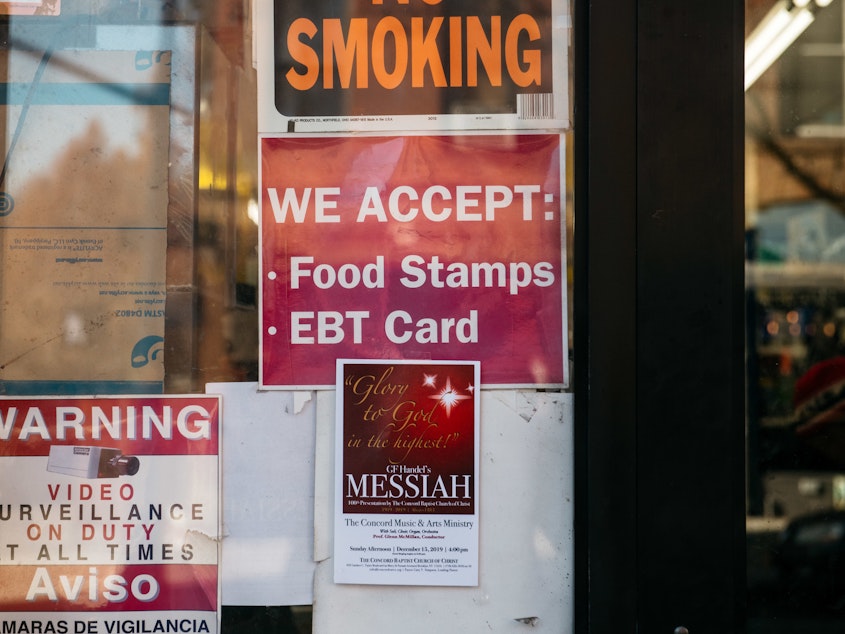Court Vacates Trump Administration Rule That Sought To Kick Thousands Off Food Stamps

A federal judge has vacated the Trump administration's rule that would have forced hundreds of thousands of Americans off food stamps. The U.S. Department of Agriculture's rule change was capricious and arbitrary, Chief U.S. District Judge Beryl Howell said.
The USDA rule "radically and abruptly alters decades of regulatory practice," Howell said in her ruling, adding that it would have "exponentially" increased food insecurity for tens of thousands of Americans and imposed significant costs on states.
The rule was originally set to take effect April 1, but Howell blocked it with a preliminary injunction in March, responding to requests from 19 states, the District of Columbia, the City of New York and other plaintiffs.
The rule change would have put new requirements on able-bodied adults without children, saying they should work at least 20 hours each week if they want to keep getting SNAP benefits beyond a three-month limit.
"It would also have limited states' usual ability to waive those requirements depending on economic conditions," as NPR's Maria Godoy reported in March.
Sponsored
A week after Howell's preliminary ruling, Congress suspended food benefit time limits on recipients who are classified as "able-bodied adults without dependents" – or ABAWDs — until after the U.S. public health emergency due to COVID-19 is over.
"The agency has been icily silent about how many ABAWDs would have been denied SNAP benefits" if the changes had gone into effect during the pandemic as planned," Howell writes in her 67-page opinion. She adds, "In the pandemic's wake, as of May 2020, SNAP rosters have grown by over 17 percent with over 6 million new enrollees."
The judge's tossing out of the USDA rule won't have an immediate effect, but she notes that the change in food aid would have taken effect one month after the U.S. public emergency is declared to be over.
The USDA rule's administrative record runs to 187,464 pages, including a trove of regulations, guidance documents, statistics and reference materials. But Howell found that the agency failed to adequately explained its rationale for the abrupt policy shift. The judge also said that the way the agency handled its public commenting process was so flawed that it alone would have been enough to set aside the new rule.
Despite warnings that the rule change would disparately harm minorities, women and people with disabilities, the USDA "essentially kicked this problem bucket down the proverbial road" by citing a lack of evidence, Howell said.
Sponsored
"That excuse rings hollow given the many comments supported by 'empirical data,' " the judge said. [Copyright 2020 NPR]



